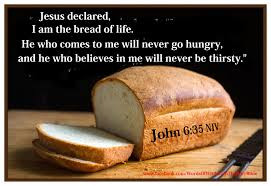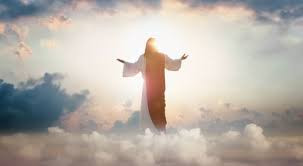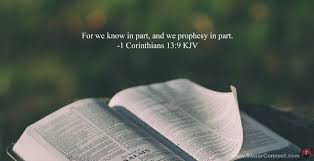
The Lord our God has a very soft spot for the poor people of society. He seeks to protect them from oppression, injustice and unfair practices of any nature. Every society has a class of poor people living within it. Poverty is a part of the social fabrics of life. Left unprotected, the poor can mercilessly be trampled upon. The Lord is a compassionate, loving and protective God. He has the poorest people closest to His heart. He drafted an array of laws for the purpose of protecting the welfare of the poor.
sundayword BY PROSPER TINGINI
It is inevitable that the poor will always seek to borrow money to supplement their livelihood. Financial difficulties might result in some people promoting prostitution of girl-children through forced marriages, sexual slavery and human trafficking. Some people with the means might seek to take advantage of poor people to enrich themselves by taking advantage of other people’s poverty. Some moneylenders might put in place unbearable conditions which will be too harsh in nature for the poorer people. God demands that conditions should be softened to match the poverty bracket of the poor borrower. Furthermore, loans given to the poorest should be free of interest and treated as if it is just an assistance. Charging them interest would be putting an extra burden upon them.
In the book of Exodus 22 verses 25-27, the Lord our God spoke to the people, via Moses; “If you lend to any of my people with you who is poor, you shall not be to him as a creditor, and you shall not exact interest from him. If ever you take your neighbour’s garment in pledge, you shall restore it to him before the sun goes down; for that is his only covering, it is his mantle for his body; in what else shall he sleep? And if he cries to me, I will hear, for I am compassionate”.
In the same manner, treatment of a loan to a close relative should differ from that of a foreigner or any other person. A blood relative is one of you, he is part of you and as such, there should be some element of responsibility towards that relative. That person, whether of poor or of good means, should be assisted at all times without seeking to profit from any assistance given.
In Deuteronomy 23 verse 19-20, the Lord our God proceeded to say, “You shall not lend upon interest to your brother, interest on money, interest on victuals, and interest on anything that is lent for interest. To a foreigner you may lend upon interest, but to your brother you shall not lend upon interest; that the Lord your God may bless you in all that you undertake”.
People should assist each other, in good times and in bad times. While a loan pledge gives security to the lender, taking something very vital to the borrower’s daily survival as a loan security is inhuman. God detests such practices. For example, if blankets are taken as collateral, what then shall the person and his family cover themselves with during the cold nights? If cooking utensils are taken as a loan pledge, how then is food going to be prepared for eating? Likewise, if vital equipment for planting or reaping the fields are taken, how then is the borrower going to plant crops or reap the harvests to feed his family? The loan pledge should be something that does not result in the suffering of the borrower or other people. Its absence should not bring agony to anyone. The Lord our God warns that should such practices bring anguish to the poor folks and make them cry out to the Lord, then when He hears their cries, He will bring punishment and anguish to the offender.
In Deuteronomy 24 verse 6, the Lord proceeded to say, “No man shall take a mill or an upper millstone in pledge, for he would be taking a life in pledge”. As already explained, all things vital to for the survival of people within a community should not be used as a loan security. If such things are taken, and the lives of other people put at risk, it would be treated as a sin by the Lord our God.
- Chamisa under fire over US$120K donation
- Mavhunga puts DeMbare into Chibuku quarterfinals
- Pension funds bet on Cabora Bassa oilfields
- Councils defy govt fire tender directive
Keep Reading
Further to that, the Lord our God proceeded to continue to speak to the money-lenders, via Moses, saying (Deuteronomy 24 verse 10-13); “When you make your neighbour a loan of any sort, you shall not go into his house to fetch his pledge. You shall stand outside, and the man to whom you make the loan shall bring the pledge out to you. And if the man is poor, you shall not sleep in his pledge, when the sun goes down, you shall restore to him the pledge, that he may sleep in his cloak and bless you; and it shall be righteous to you before the Lord your God”.
God therefore forbids the money-lenders from entering the dwelling of the borrower to take possession of anything as a loan security. The dignity of the borrower must prevail. Entering the premises to take possession of the loan pledge undermines a person’s integrity and is a violation of the poor man’s space. Rather, the borrower himself should enter his own dwelling and bring out the desired collateral item outside and hand it over to the money-lender. Again, should whatever the item used as collateral security be of vital daily use to the borrower, the Lord our God encourages some flexibility to allow occasional usage of that item should the owner be in critical need of its use. Should that flexibility be used and the borrower give thanks to the benefactor, the Lord will give blessing to that lender.
In Deuteronomy 24 verse 17-18, God concluded on the issue by instructing the people of Israel, “You shall not pervert the justice due to the sojourner, or to the fatherless, or to take a widow’s garment in pledge; but you shall remember that you were slaves in Egypt and the Lord your God redeemed you. Therefore I command you to do this”. The Lord is reminding people that everyone of us has been assisted by someone else in one way or the other. It is imperative that even the benefactors themselves should take stock of themselves and remember that at one time in their own lives, they have also been assisted by others at no extra cost to themselves. No single person can operate in isolation without any assistance from another human being. If we remember that, we will be able to realise that we have a moral duty towards each other in times of need.
Prosper Tingini is a religious writer. He compiled a book titled, God’s Constitution For Mankind: The laws and commandments. His contact details are: 0771 260 195 or email: [email protected]











